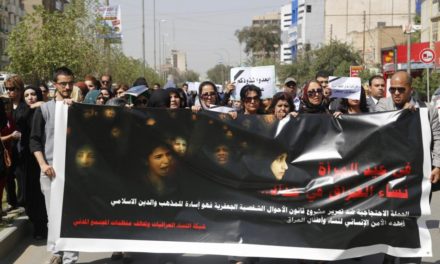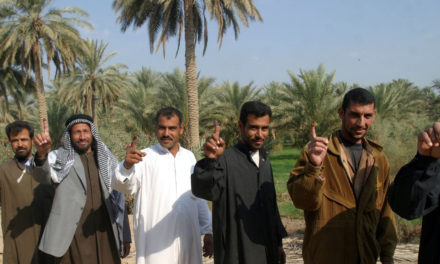On 27 January, reports suggested that Daesh had destroyed many parts of the Nineveh Wall, which dates back to as early as 700 B.C.E. This comes as no surprise as Daesh has not even shown sentiment towards sites that are not only revered by Muslims but by all people from Abrahamic faiths.
Within the span of five days between 23– 27 July, 2014, Daesh destroyed the tombs of Prophets Jonah, Seth and Georges. While the destruction of these tombs was justified by Daesh on the grounds of apostasy, the destruction of Nineveh Wall is just an act of pure evil.
The barbarism of Daesh became more evident than ever this past summer to western audiences when the city of Mosul fell. The city was a boiling pot of former Ba’athist officers and sympathizers who turned on their neighbours. While many residents of Mosul enthusiastically cheered on Daesh’s takeover, they would soon regret their actions and wished they could have joined those who fled the city.
Many southern Iraqis from Baghdad and the South moved in waves towards the north of Iraq under a historic fatwa by Grand Ayatollah Sistani calling on all citizens capable of fighting, to fight back for their nation. As the words of the Grand Ayatollah pulled on the heartstrings of many nationalists, a grim sentiment grew amongst others. Other than the wise words of Grand Ayatollah Sistani, it was hard to feel genuine emotion towards the residents of Mosul that rose up against their own countrymen and democratically elected government.
One can argue that the people of Mosul brought the atrocities of Daesh upon themselves but the city of Mosul is more than just home to Maslawis. It is home to the ancient civilization of Assyria, one of the four Ancient empires to rule in the land of Mesopotamia. As a result, Mosul and the province of Nineveh as a whole inhabits a vast richness of heritage sites and artifacts. These sites and artifacts do not only belong to the residents of Nineveh province but to all humanity. The longer Daesh controls Mosul the higher the risk of humanity losing part of its own heritage.
If the images of thousands of innocent Assyrians, Yezidis and Shi’ites fleeing the cruelty of Daesh are not enough to garner support from all corners of the Earth to unite against evil, maybe the destruction of humanity’s heritage can bring sufficient support from Iraq’s allies to aid Iraq in its war against Daesh.










